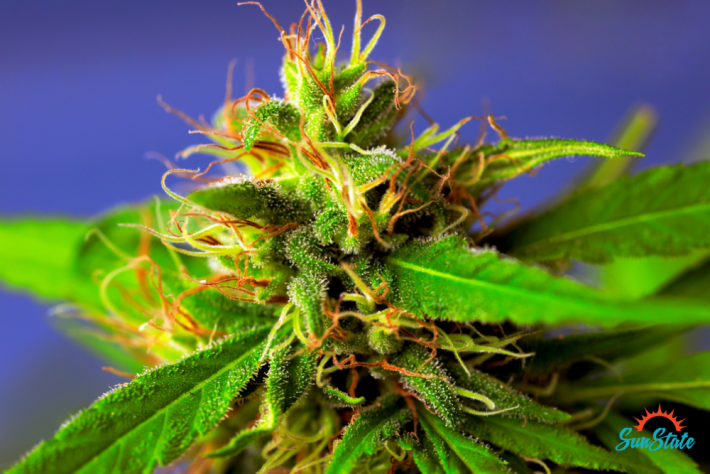As the cannabis industry expands, there is growing interest in understanding the various compounds found within the plant. Two primary compounds often discussed are THC (tetrahydrocannabinol) and THCA (tetrahydrocannabinolic acid). Although they sound similar, these compounds have distinct differences and benefits.
What is THC and THCA?
THC is the psychoactive compound in cannabis responsible for the “high” feeling associated with marijuana. THCA, on the other hand, is the acidic form of THC found in raw cannabis plants. When heated or decarboxylated, THCA converts into THC, triggering its psychoactive effects. Understanding these differences is essential when choosing cannabis products for specific purposes, as THC is often preferred for recreational use, while THCA is known for potential therapeutic benefits such as anti-inflammatory and neuroprotective properties.
The Chemical Structure and Properties of THC and THCA
THC and THCA share a similar molecular structure, with THCA containing an extra carboxyl group (COOH), which prevents it from binding directly to CB1 receptors in the endocannabinoid system, thereby remaining non-psychoactive. When exposed to heat or aging, the carboxyl group is removed through decarboxylation, converting THCA into THC. THCA is generally more stable and has a higher melting point than THC, which impacts consumption methods and overall user experience.
The Psychoactive Effects of THC and THCA
The primary difference between THC and THCA is in their psychoactive effects. THC binds to CB1 receptors in the endocannabinoid system, producing psychoactive effects such as euphoria and altered sensory perception. THCA does not produce a “high” as it lacks direct binding ability to CB1 receptors. However, once decarboxylated, THCA converts to THC, enabling psychoactive effects. This distinction is crucial, as some may prefer THCA for non-psychoactive use, while others may seek the psychoactive effects of THC.
Medical Benefits of THC and THCA
Both THC and THCA have unique therapeutic applications. THC has been extensively studied for managing chronic pain, nausea, and appetite loss. THCA, meanwhile, shows potential for treating inflammatory conditions, and neurological disorders like Parkinson’s or Alzheimer’s. For individuals who prefer to avoid psychoactive effects, THCA may offer therapeutic benefits without altering cognitive function.
Differences in Consumption Methods of THC and THCA
THC is usually consumed through smoking, vaporizing, or edibles, which facilitate rapid absorption. THCA, however, is consumed in ways that prevent decarboxylation, such as juicing raw cannabis or using extracts. Some methods, like baking, may convert THCA to THC, triggering psychoactive effects. Therefore, understanding how consumption methods impact these compounds can guide users in choosing products that match their desired effects.
Legal Considerations of THC and THCA
The legal status of THC and THCA varies significantly. While THC is federally illegal in many countries, THCA is often classified under different regulations. In the United States, THCA products are generally considered hemp-derived and may be legal if they contain less than 0.3% THC. Consumers should be aware of their local laws regarding THC and THCA products.
Potential Side Effects and Risks of THC and THCA
While THC can cause side effects like altered perception, increased heart rate, and potential mental health risks, THCA is generally considered to have a lower risk profile. Still, the decarboxylation of THCA can lead to THC-related side effects. Careful dosing and consulting healthcare professionals can help minimize these risks.
The Role of THC and THCA in Cannabis Products
THC-rich products are often tailored for recreational use, while THCA is becoming popular for medical and wellness applications. Full-spectrum products containing both THC and THCA may provide a more comprehensive therapeutic experience by leveraging both compounds’ properties.
Research and Studies on the Therapeutic Potential of THC and THCA
Research indicates that THC is effective for chronic pain, nausea, and other conditions, while THCA shows promise for its anti-inflammatory and neuroprotective properties. The non-psychoactive nature of THCA makes it suitable for patients avoiding cognitive effects. Understanding these differences can help healthcare providers offer tailored cannabis therapies.
Conclusion
Understanding THC and THCA is crucial for making informed choices about cannabis products. THC provides psychoactive effects and is valuable for various medical conditions, while THCA offers therapeutic benefits without altering mental state. By learning about these compounds’ unique properties, consumers and healthcare professionals can optimize their use for both recreational and medicinal purposes. As research continues, further discoveries will enhance our knowledge of cannabis and its potential.
Legal Disclaimer:
The content provided in this blog post is for informational purposes only and is not intended as medical advice. Always consult with a licensed healthcare provider before using any CBD or hemp-derived products, especially if you are pregnant, breastfeeding, or have any medical conditions.
Proudly Made in the USA.
This product contains less than 0.3% THC and is derived from hemp stalk. The Food and Drug Administration (FDA) has not evaluated this statement. This product is not intended to diagnose, treat, cure, or prevent any disease. Pregnant or breastfeeding women should not use this product, as its use may pose potential risks.
You must be 21 years or older to purchase this product. By placing an order, you confirm that you are at least 21 years of age. Please consume responsibly.
KEEP OUT OF REACH OF CHILDREN AND PETS. In case of accidental ingestion, contact the National Poison Control Hotline at 1-800-222-1222 or dial 9-1-1.
Shipping of hemp or hemp-derived products is prohibited to the following regions: Canada, Puerto Rico, AK, HI, SD, ID, NE, or any PO Boxes.



